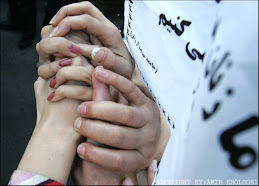Evoking a discussion based on your recent letter to the Secretary General of the United Nations
Dear Mr. Amirentezam,
We welcome your recent letter to the Secretary General of the United Nations - and through him to the global community - appealing for peace and rejecting war as an option, as a chance to share with the world the strong desire of the majority of the Iranian people for peace and their innate wisdom of fearing war.
At the same time , we understand your invitation to the Iranian community for comments and suggestions on the contents of that letter as an opportunity of furthering discussion and increasing awareness about questions of war , peace , international laws and norms as well as international cooperation and coexistence, within the Iranian population both at home and abroad; a chance that the varying and sometimes misleading comments made upon the establishment of the much needed Iran Peace Council prove necessary.
First and foremost let us begin by stating our support for your peace-seeking endeavours and applaud you for the courage of once again standing up for what you believe in and deem worthy of taking a risk for.
And second , let us note that no one should mistake our openness to proceed upon a discussion as an indication of lack of unity with all that you stand for.
Nevertheless, please allow us to continue with pointing out briefly some inconsistencies in your letter and to suggest that we must be clearer in what we ask for, in order to be in a better position to work for this and eventually achieve it.
You state that the “Islamic Republic’s system” is structured to revel in crisis and that the regime does not believe in freedom, democracy, peace and the rights and welfare of its people and also that this regime will not hesitate to engage in violence towards other states and peoples. Yet, at the same time, the core of your appeal is for the international community to engage such a regime as you describe in a confidence building process that includes a human rights basket - much like the CSCE (Conference on Security and Cooperation in Europe),
third basket . And perhaps the average Iranian reading such a letter will think that “there we go, the solution is simple after all” and feel yet again a victim when the international community does not implement such a simple solution .
But the solution is not that simple.
Any state existing within the international community and cooperating with other states is to some level party to some of its norms as well as complying with its laws, and does keep up with these to an extent to ensure a basic amount of confidence needed for its continuance.
A confidence crisis such as one currently existing between the Islamic Republic and much of the international community indicates a decrease in the basic confidence equilibrium to the detriment of peaceful coexistence , as also cooperation in an endeavour to overcome this.
This crisis can be an indication of the lasting effects of past negative experience with the respective international actor, a lack of consistency on the part of the actor, failing transparency, an inadequate level of communication of intentions or more likely a combination of these and various other related factors.
In such a case, confidence building measures can certainly be called for.
However, a confidence crisis can also be the result of the fact that a given state is so unable and or unwilling to act within the laws and norms of the international community at any given time, that its actions and intentions may not be trusted. And you describe the Islamic Republic of Iran to be such a state, in your letter.
Here lest some Iranian public officials seek to use this last sentence as a verdict upon your words , let them also read that the statesmen of the Islamic Republic of Iran in fact themselves reflect such a state, through their comments and negations of each other’s actions, agreements and past endeavours as well as in their current numerous inconsistencies in conducting the foreign policy of the country .
Still, in suggesting alternatives we must be wiser than those who are in power and currently seek to engage the world in power politics, giving precedence to this power over national interests and the peaceful coexistence which is necessary to proceed with our debate and development in areas of people’s rights, social progress and prosperity.
If the Islamic Republic is so utterly bent on crisis and the use of violence, and so totally oblivious to international norms and the rights of its own and other peoples, then the given crisis in the confidence level is warranted and any confidence building endeavour would be against the better judgement caused by the given realities.
In such a situation, what are the remaining options? You reject both war and sanctions.
Certainly, experience - clearly proven once again in the case of Iraq - has shown, that in our time war is no option. Some have yet to learn from this experience, but many many more have. And we agree with you - and them - that war is not an option.
Sanctions however, can and must remain an option, in a world where war is no option but neither is silence and appeasement. And in some cases, such as the ANC in South Africa, sanctions have even been supported and effectively called for by those fighting for liberation.
Yet here , we do not want to suggest that the only course before the world community is sanctions. Perhaps the Islamic Republic is not so wholly out of the sphere of influence of various international bodies and actors? And maybe various organs and actors can better ask for and request positive behaviour in the course of discussions than otherwise? How the majority of Iranian activists and specialists view these questions must indeed be put to debate and seriously considered. More seriously and openly , than has been up to now.
Yet here and at the onset of such a debate we wish to note that when making an appeal to the world, we must make ourselves aware of its common concerns as well as ours, and recognize and consider the given realities of the various interests involved while familiarizing ourselves with the opinions of the specialists of each sector, in order for our proposals to be effectively considered and also to avoid our people from believing themselves a victim of the selfishness and uncaring of the world at large.
Dear Mr. Amirentezam,
We could go on from here to give our opinion of what option is more realistic , whether some elements in the Islamic Republic at least can indeed be trusted enough to be engaged in a confidence building process, or if sanctions must realistically be accepted.
But that is not our intention. We do not wish to give an opinion and pretend to close the debate, but rather appeal for more debate, leading to cooperation among ourselves and to a discussion based on the opinions of experts , in order to increase awareness both in ourselves and in others.
We appeal that we go beyond models and limited choices which reflect us as victims.
We appeal that we engage experts and specialists when discussing and considering each area, be this international relations, economics, law, management , industrial development, women’s rights, trade unions, student affairs , medicine, education etc…
We appeal for the awareness that it is time that we go further than personal actions - be these ever so appreciated - and come together and learn to debate, disagree, discuss matters out and come to a consensus.
We appeal that we extend our hands in solidarity to one another… so that the world will see that we are capable and deserving of their reaching their hands out in solidarity to us.
Our letter comes to a close here, and all questions remain open for a respectful , informed discussion, hopefully in the framework of the now active Iran Peace Council. In such a discussion , each of us will gladly participate
In solidarity and with great respect,
Aseman Moghadam, Nima Nasserabadi, Reza Azizi Nejad, Shiva Nojo
Subscribe to:
Post Comments (Atom)


No comments:
Post a Comment